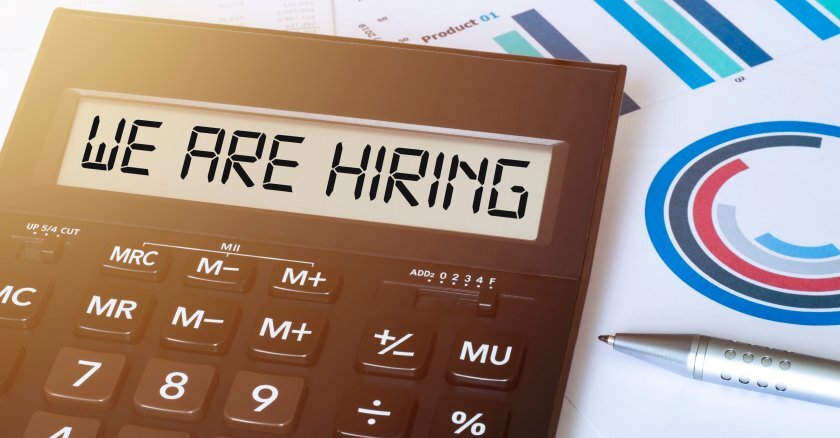That’s just the first step, of course, as there is ample opportunity for the feds to also double-check all kinds of data to reconcile 1099 income reporting forms at the issuer-payer level with income declared on recipients’ individual 1040 forms. The next step will be a more intrusive scan of taxpayers' other financial records to ferret out undeclared income and fishy tax deductions. CPA firms and tax-filing experts are already warning their clients that there’s a new sheriff in town — the AI Auditor.
Some state agencies are fast-following the feds. A recent CNBC report cites the efforts already underway in New York state, where the tax department reported the number of audits up 56 percent from the previous year despite a 5 percent reduction of the number of auditors. The agency is apparently issuing hundreds of thousands of AI-generated inquiry letters to taxpayers in its quest for better compliance and more revenue. For New York returns, the top-two state-specific audit targets — of no inherent interest to the IRS — would be remote work and changes in tax residency.
A high-tech crackdown is inevitable in states like California that constantly play a cops-and-robbers game with multi-state residents and tenants who dodge high income tax rates by falsely declaring their taxable residence elsewhere for more than half the year.
We’re not talking about the Canadian calendar-counting snowbird retirees. The more-egregious California tax evaders typically claim a primary tax home in a state without an income tax, with Nevada, Florida and Texas the most-favored venues. State tax auditors with AI tools can scan for clues like online credit card sales tax activity and local utility records. That enables Sacramento agents to query upper-income California tenants who claim their place of business to be a Nevada P.O. box— which may front a perfectly lawful LLC but still evades the resident earned-income taxation rules.
Many taxpayer advocates and anti-tax politicians castigate these efforts as Big Brother tactics, and their complaints will likely mushroom as more AI-wielding inspectors succeed in tagging tax cheaters. Generally, these efforts are a matter of enforcing laws on the books to collect revenue owed from taxpayers who receive non-salary income. Nonetheless, many anti-taxers persistently whine that their hard-working white-collar constituencies deserve a wink and a nod that much-harder-working payroll employees never enjoy because those wage earners’ residences and incomes must be reported accurately by upright employers.
It's not just income taxes where AI is already playing a role in garnering revenues. Sales and use tax enforcement is getting a boost from computerized scanning of online transactions that have been subject to state tax collections since the Supreme Court ruled in favor of the states in 2018. As it turns out, the audits of online sales tax activity can also give the state authorities an added tool to use in tracking down the locations of income tax dodgers who brazenly claim they reside elsewhere.
Whether it’s real estate brokers, farmers or small-business owners, the refrain I often hear from them is that they are “aggressive” in their tax filings. That’s usually scofflaw code for “creative” expense deductions, unreported cash income and other subterfuges. Yet the audacity of the self-employed middle class is nothing compared with the artistry performed by many One Percenters who retain sophisticated tax counsel. Tax evasion by the rich accounts for as much as half of total fraud against the federal government, according to some estimates.
Most of these artful tax dodgers are liable to the IRS first and foremost, as federal tax rates are higher than state levies and the rationale for duplicating IRS efforts at the state level is arguably dubious: Whatever new revenue the IRS finds, the states will also benefit from. But states still need to independently chase after the tax dodgers who go out of their way to disguise their residency and the locus of their earnings.
It’s too soon to know for sure from collection statistics whether these enhanced audits and the resulting tax-hunting letters sent by state tax collectors to people on the fraudulent fringe will produce material new revenues for the states. My hunch is that it will, and that the cost of using AI technology to ferret out the cheaters will be comparatively modest.
Only time will tell whether that ignites and amplifies the tax-hating vitriol of those who get caught with their pants down into a resentful political power base for those who want less government at all levels. This high-tech trend could test Newton’s third law — that for every action there is an equal and opposite reaction — unless the state tax agencies produce effective PR efforts making the case that they are hunting for cheaters and nothing more than that.
Governing's opinion columns reflect the views of their authors and not necessarily those of Governing's editors or management. Nothing herein should be construed as investment advice.
Related Articles
-
Future in Context
-
Future in Context














